“Mark Helprin’s Lifetime of Writing”
Interview by Jana Hoops. Special to the Clarion-Ledger Sunday print edition (November 12)
Bestselling author Mark Helprin’s fluid, lyrical writing spills forth again in his newest novel, “Paris in the Present Tense,” a grand tale of music, regret, passion, and family love that finds its writer once again borrowing from the people, places and circumstances of his own experiences to flesh out a solid and relatable plot that, in essence, draws the reader into his own world.
A New York City native who grew up in a nearby suburb of the city, Helprin earned bachelor’s and master’s degrees from Harvard University, and completed post-graduate work at Princeton University and Magdalen College, Oxford. A prolific writer, he has authored five novels, three children’s books, three short story collections, and many essays. His work has appeared in the New York Times, the Wall Street Journal, The New Yorker, the National Review and many other periodicals.
 You’ve enjoyed a full life — world traveler, family man, would-be farm hand and at times you’ve turned your attention to politics (mostly through your deep interest in policy), journalism, the military, and your own formal education, not to mention an amazing career as a writer. How have you managed to fit so many interests into your seven decades?
You’ve enjoyed a full life — world traveler, family man, would-be farm hand and at times you’ve turned your attention to politics (mostly through your deep interest in policy), journalism, the military, and your own formal education, not to mention an amazing career as a writer. How have you managed to fit so many interests into your seven decades?
Seven decades is a long time, and I started early. My first job was manufacturing sealing-wax-and-ribbon medallions for a women’s clothing store. It was an assembly-line process to which I devoted part of my weekends, piece work at 25 cents per medallion. I would earn about $500 per annum then, or, in today’s dollars, $5,000. I was eight. I used to dictate stories to my third-grade teacher, and Simon & Schuster wanted to publish them, but my father didn’t allow it, because my mother had been a child star and he thought that it had near ruined her.
Also, if you keep busy, you can do several things at once. When I was in college I wrote my first stories for the New Yorker, continuing to do so in graduate school and during military service. If you live on a farm, the farm tells you what to do, not vice versa.
The irony is that I hate to be busy, and have been too busy all my life in the hope that it would enable me not to be busy. And please don’t call me a world traveler. I hate to travel, and it reminds me of the magnificent line of Marisa Tomei in My Cousin Vinny, when she says to Vinny, “So whata you, a _____ world travelah?”
Your fiction is known for its robust, adventurous plots and its lyrical syntax, always with a bit of romanticism, fantasy and autobiographical hints. Reading your work, it’s obvious that you not only enjoy writing, but you love your characters and your storylines. Tell me how you developed your literary writing style – and what drove you to become a writer in the first place.
This question requires a book-length answer, but I’ll be brief. I do love my characters, most of them. What’s the point otherwise? From my very first book, my motto has been taken from Dante, “Amor mi mosse, che mi fa parlare, (Love moved me, and made me speak)”. If I may paint with a very broad brush, what ails so much of modern fiction is its detachment from and hostility toward that which it depicts. If a writer wants to be a prosecutor, he should go to law school and apply to the Bronx DA.
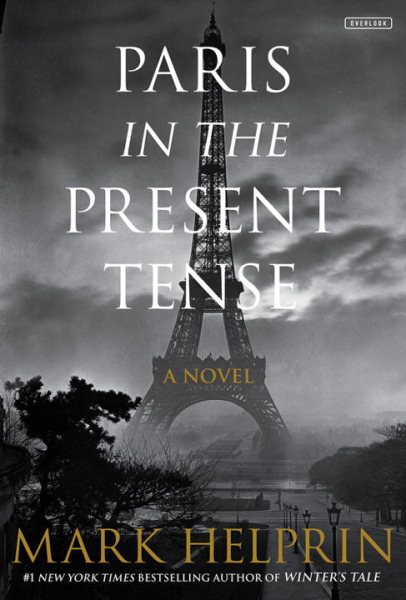 Your newest book, “Paris in the Present Tense,” is another fictional work presented on a grand scale. In this story of an aging man consumed with worry about his grandson’s serious illness, main character Jules Lacour is keenly aware of his own inability to offer much in the way of financial support. A deep thinker with strong convictions, he looks back on his own life with his share of regrets and fears. In many ways, most of us have a lot in common with Lacour. Can you share your reflections on him?
Your newest book, “Paris in the Present Tense,” is another fictional work presented on a grand scale. In this story of an aging man consumed with worry about his grandson’s serious illness, main character Jules Lacour is keenly aware of his own inability to offer much in the way of financial support. A deep thinker with strong convictions, he looks back on his own life with his share of regrets and fears. In many ways, most of us have a lot in common with Lacour. Can you share your reflections on him?
Ah! My reflection on him runs to 400 pages, and I can share all of it with your readers if they buy the book, or get it from the library. So many contemporary novels are politicized, sexualized, and sensationalized. And although this tends to result in narrow treatments of one subject – kind of like an expanded magazine article – as a means to deliver a single message, I think a novel should be about many things, with many themes running along and across many strata, so that in the end the book becomes more than just the sum of its parts, as are a man or a woman, as is Jules Lacour. Like all of us, he is so complex that I hesitate to dwell on one or another of his characteristics. The object is to portray as much in full what God has made not fully portrayable.
As usual, your characters are intensely developed, tying their perspectives together in the end. You’ve spent your career creating these “people” and their far-reaching (and often far-flung) circumstances. How do you stumble upon these characters and their situations?
Though they may think they do, writers and painters don’t create anything, they rearrange elements of the creation of which they are part. That’s why Leonardo, Raphael, Rembrandt, and even the French Impressionists had models, whether people or nature. The entire structure of Western – indeed, universal – art, is based on observation and interpretation of reality, and even the most abstract painters can only use colors that are a gift of creation. ‘So with writers, who must use models as a basis of their characters. As a newborn, even Shakespeare, had he magically been able to write, could not have written before he had observed the world.
All the characters to which you refer are based, even if loosely, on real people. For example, in “Paris in the Present Tense,” Louis Mignon, the French baker in Rheims, his wife, and son, and what they did during the war, are based on Louis Mignon, a French baker in Rheims, and his wife Marie, who did in the war exactly that, and with whom I lived (their son Jacques had grown up and left) for four years. In (my book), Winter’s Tale,” Peter Lake was based on Peter Lake, aka Grand Central Pete, a thief who lived in New York at the turn of the 19th century. Of course, one is wonderfully free to exaggerate, play down, add, subtract, and imagine characteristics and situations per need.
You’ve also written several children’s books. Is it difficult to switch to a different mindset and writing style to create authentic stories for children?
Not at all, in that one should never talk down to children. In fact, if any adjustment need be made, it is in simplifying language and thus purifying it rather than making it cute-sy. The best children’s books are just as attractive, meaningful, and beautiful to adults as they are to children. If you can reach the soul of a child, you will also reach the soul of an adult. As Wordsworth wrote, “the child is father of the man.” If one cannot, even in the darkest hours, retrieve or at least remember the innocence and goodness of childhood, then, really, what’s the point?
Making another shift, you’ve long filled a role as being somewhat of a statesman, and have advised politicians at the highest level on matters of policy. Tell me about your experience in that role, and how it came to be.
Quite simply, I knew from the second grade that I was a writer, but being a practical sort – and having a very practical sort of father – I understood that I’d have to have another way to support a family. So, I studied what might be called war and diplomacy. This led to many adventures, and, somehow, to being a newspaper columnist, a defense analyst, and occasionally – when the muckamucks I was advising realized I could put a sentence together – an always unpaid speech writer. That’s mostly frustrating, and I try not to do that whenever I can, which these days I hope is forever.
Being a person of your many talents, is there anything you want to accomplish in life that you haven’t attempted yet? And what did you do before writing became your job title?)
I was a kid. I had a dog, a 22., skates, and a hockey stick. There were a thousand acres around my house on the Hudson, and when I wasn’t doing homework I disappeared in them and was perfectly content. At 70, what I want to accomplish most is to remain alive, write some more books, and sit in the garden. I have no more ambition. Nor at my age would it be seemly. That’s astoundingly liberating and the cause of great happiness.
Can you share any info about your next book or other writing projects?
I’ve been thinking about it, making notes, and studying the milieu in which it takes place, for about a year. When this book tour is over I’ll have to spend about two weeks repairing fences, cutting up fallen trees, hogging down fields, and fixing stuff. Then, with winter, I’ll enter the paradise of writing every day in – I hope – wonderful tranquility.
Mark Helprin will sign and read from Paris in the Present Tense Thursday, November 16, at 5:00 p.m. at Lemuria.
Enjoy this article? Let the Clarion-Ledger know by sending them an email, so we can keep providing you great locally-written content.
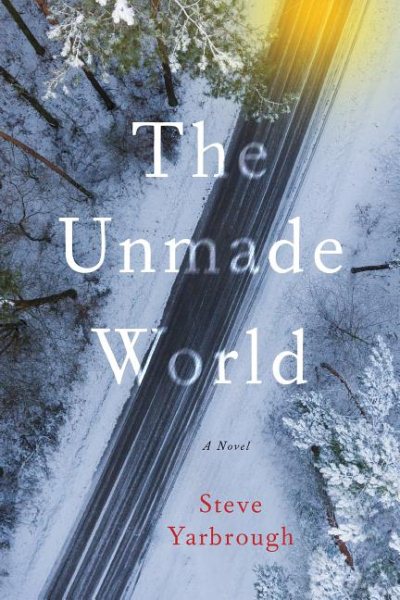 Just about midway through The Unmade World (Unbridled Books), Steve Yarbrough’s seventh novel, the central character, Richard Brennan, reflects upon his writing process as a reporter.
Just about midway through The Unmade World (Unbridled Books), Steve Yarbrough’s seventh novel, the central character, Richard Brennan, reflects upon his writing process as a reporter.

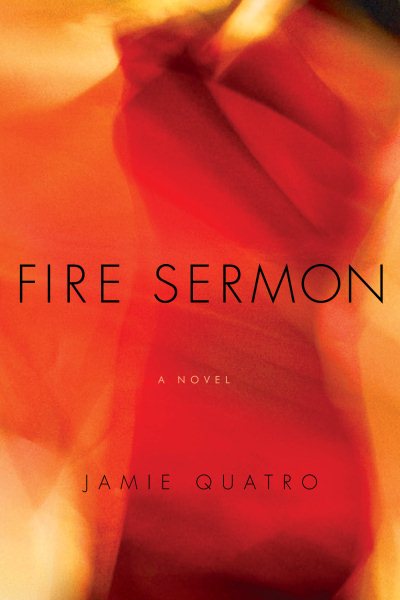 Jamie Quatro’s debut novel,
Jamie Quatro’s debut novel, 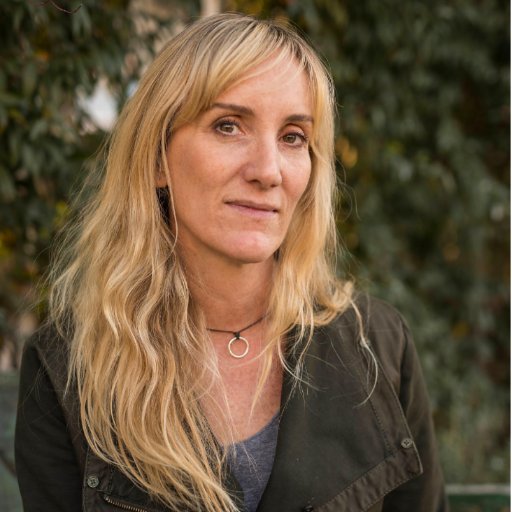

 The Guernsey Literary and Potato Peel Society
The Guernsey Literary and Potato Peel Society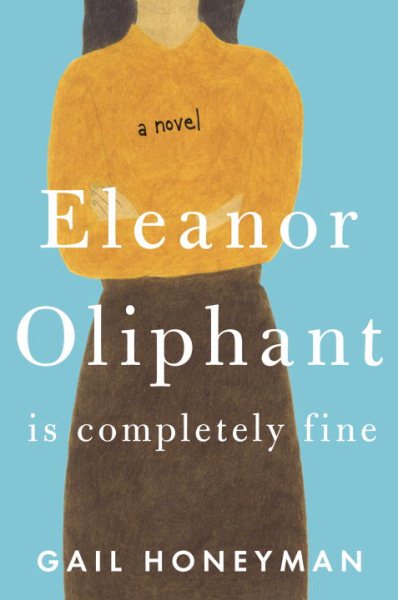 Eleanor Oliphant is Completely Fine
Eleanor Oliphant is Completely Fine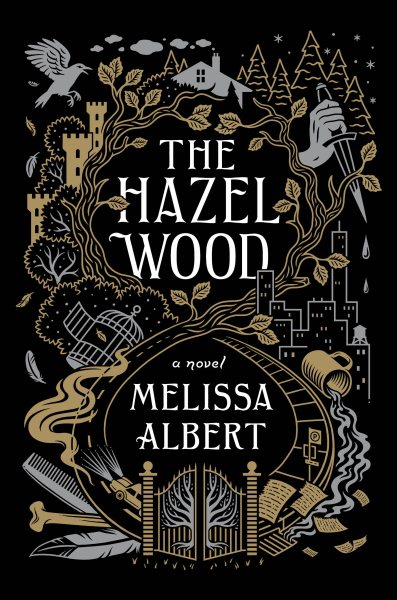 The Hazel Wood
The Hazel Wood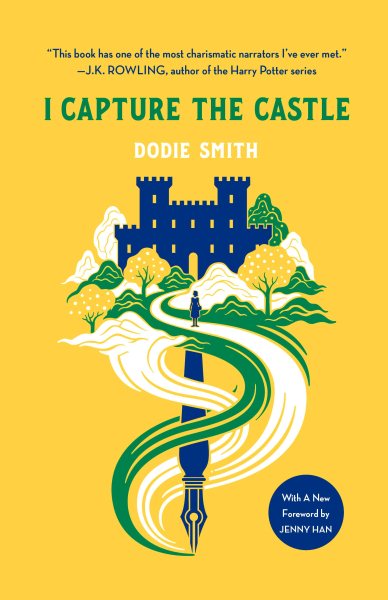
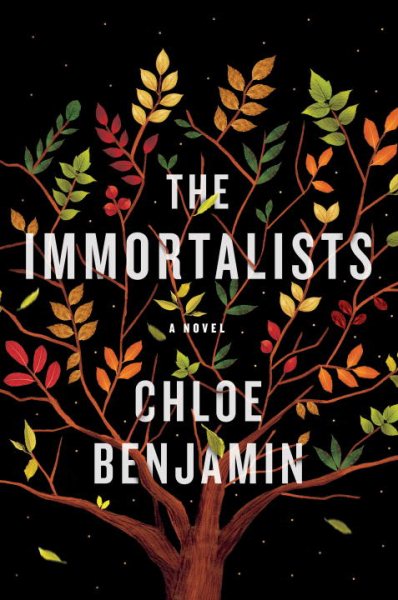 Once they have stepped out of her door, their lives and how they live them have forever been changed. Each sibling’s story of how they manage their decisions in life knowing when they will die is then told in moving and powerful chapters.
Once they have stepped out of her door, their lives and how they live them have forever been changed. Each sibling’s story of how they manage their decisions in life knowing when they will die is then told in moving and powerful chapters.
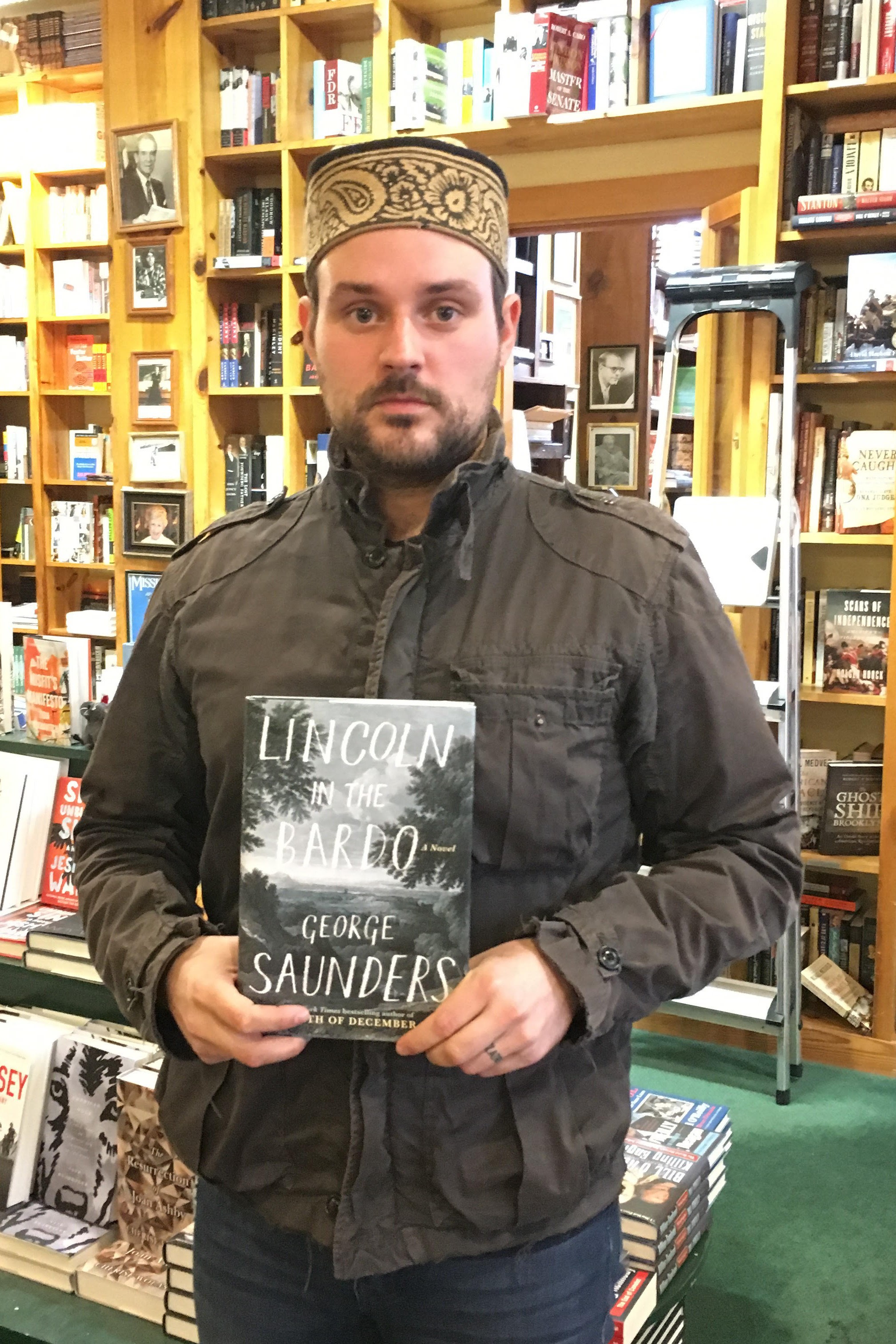 It was with wonder and awe that I read
It was with wonder and awe that I read 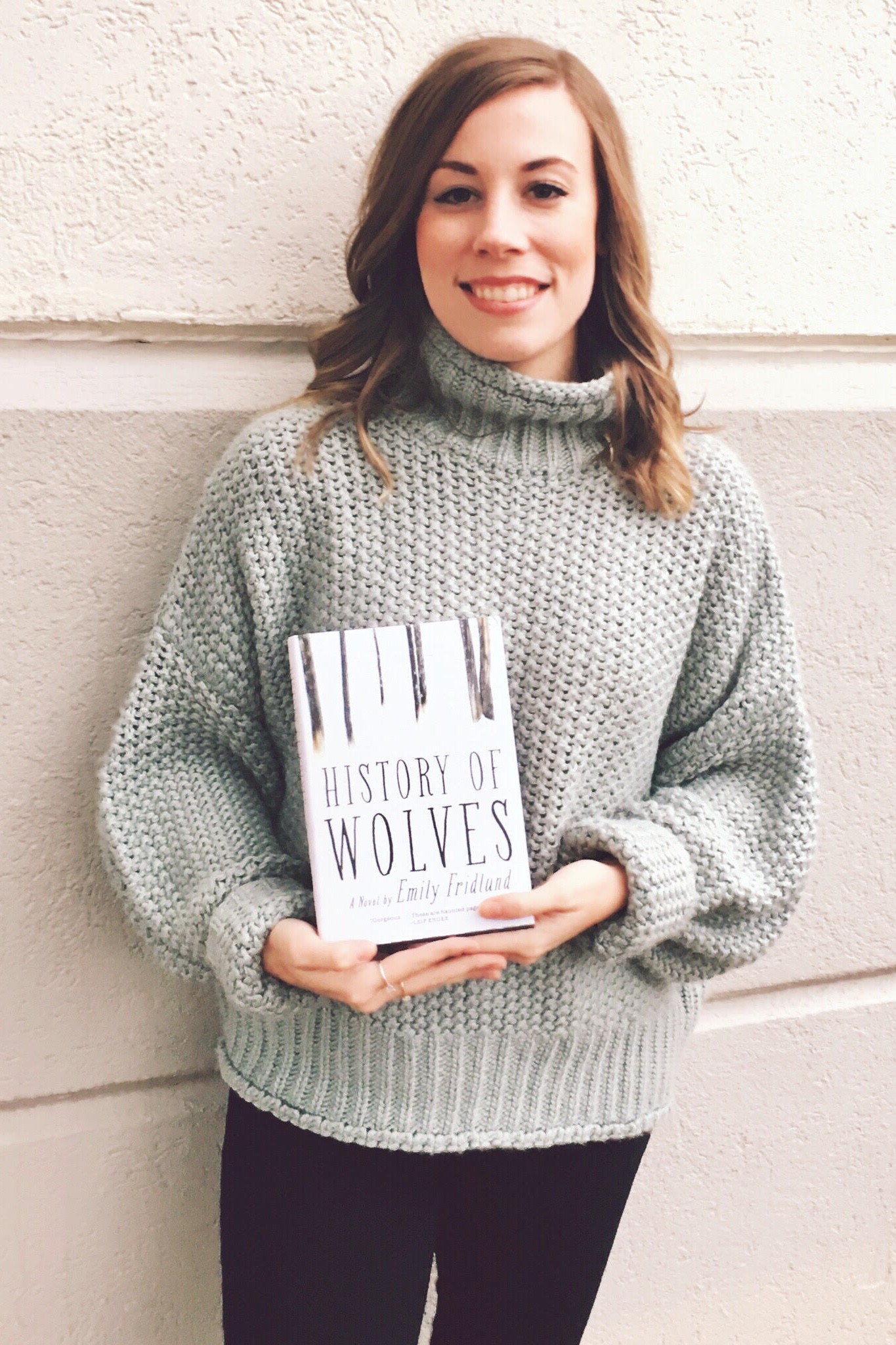 From the very beginning of
From the very beginning of 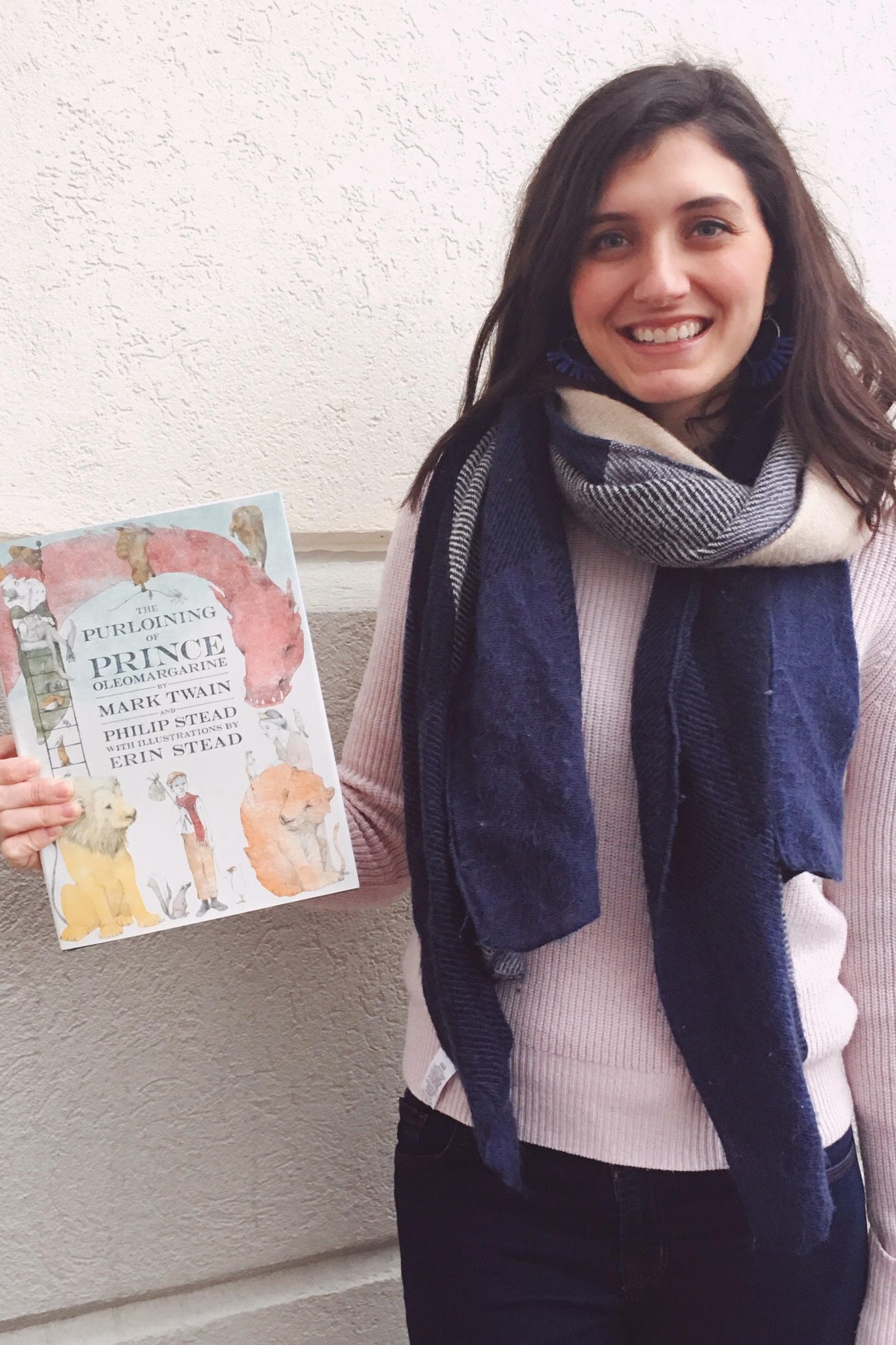 Why is
Why is 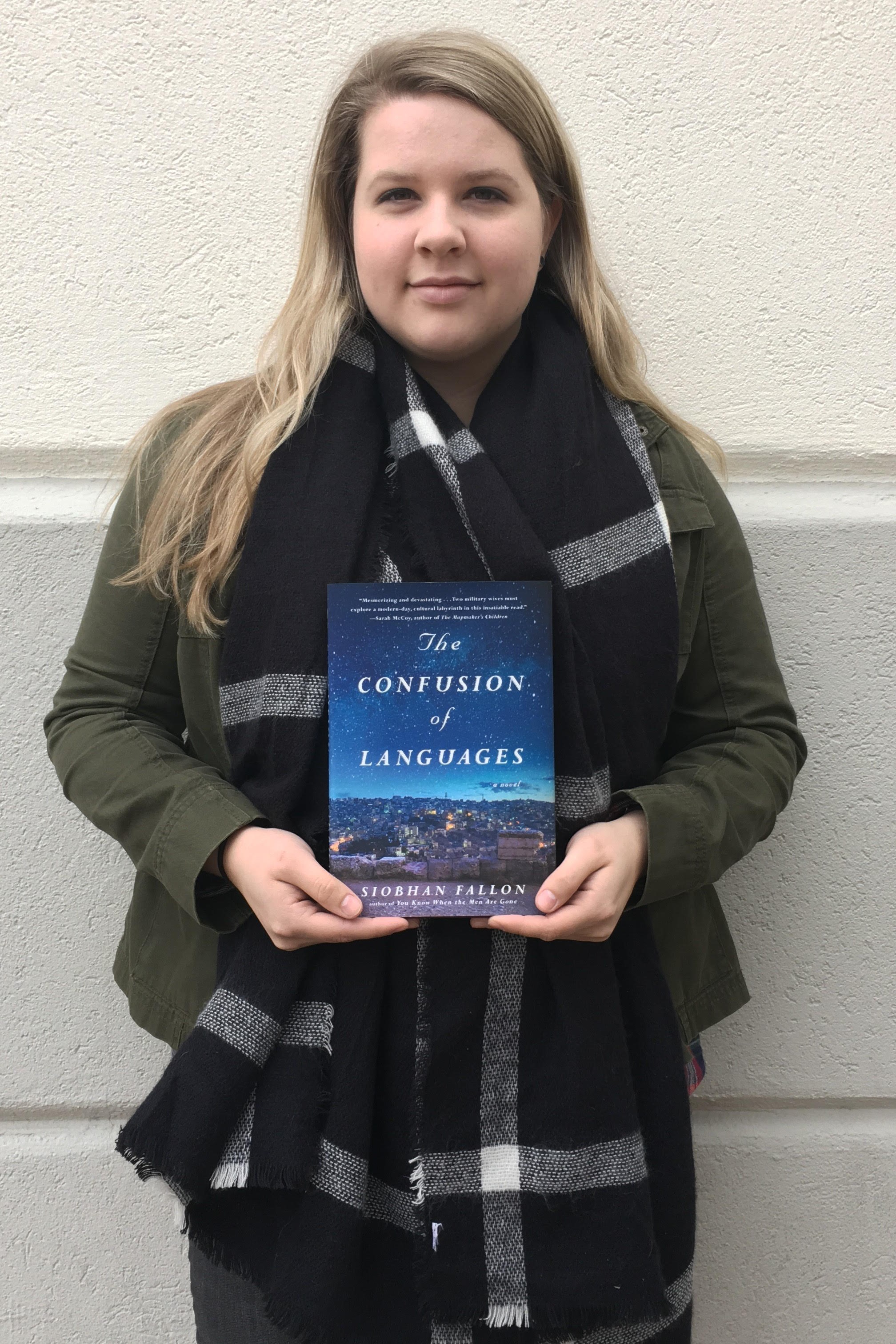
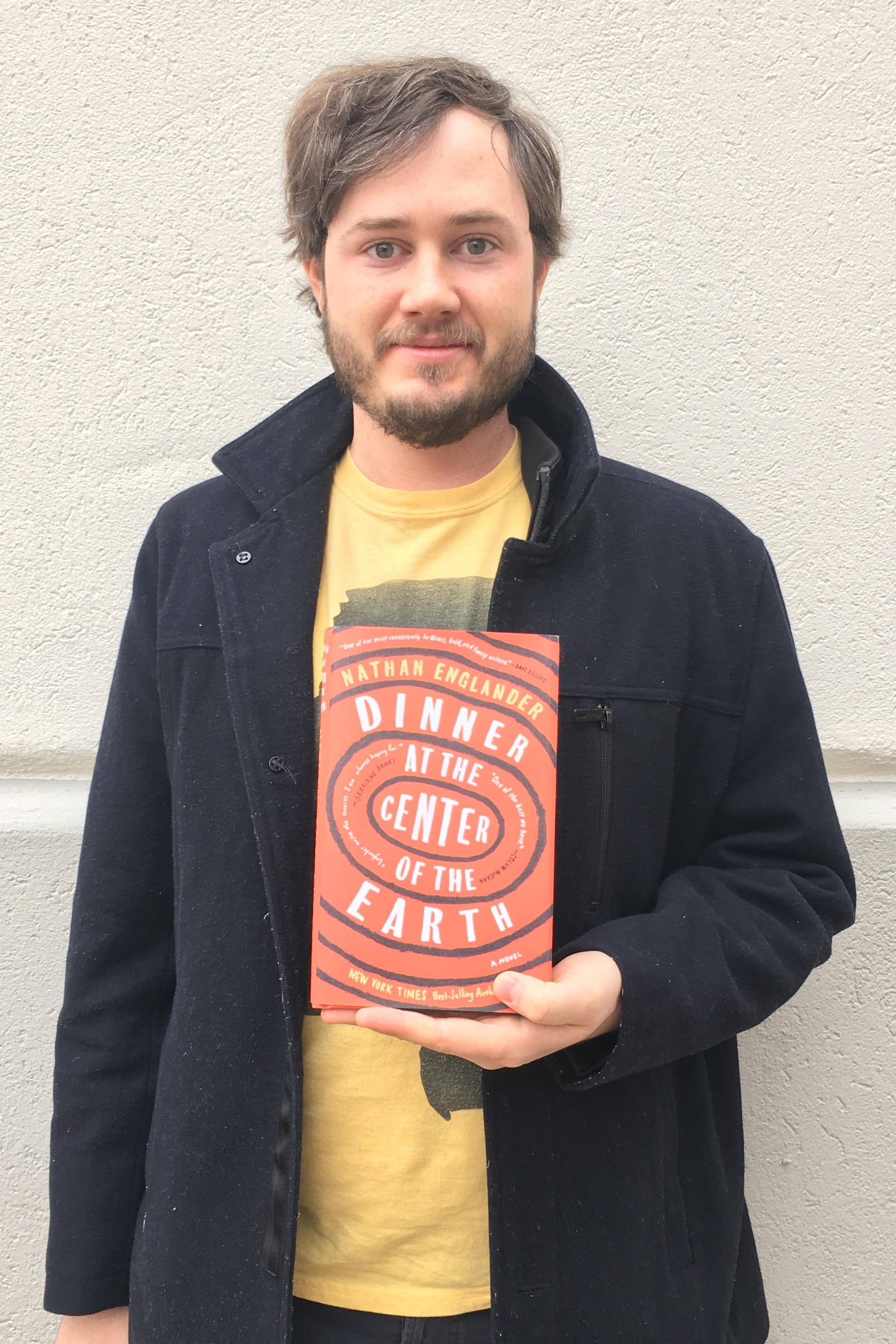 Dinner at the Center of the Earth
Dinner at the Center of the Earth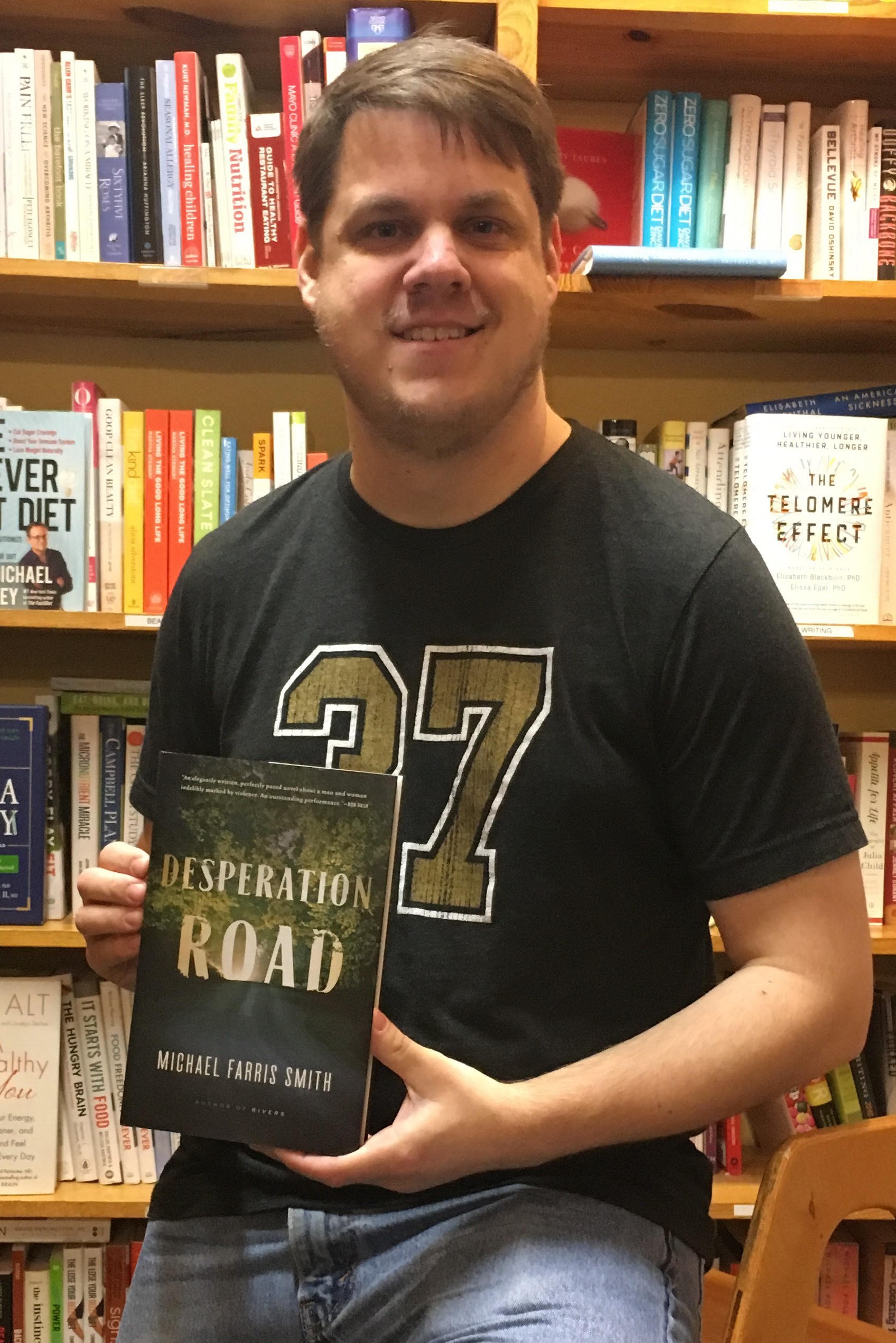 Desperation Road
Desperation Road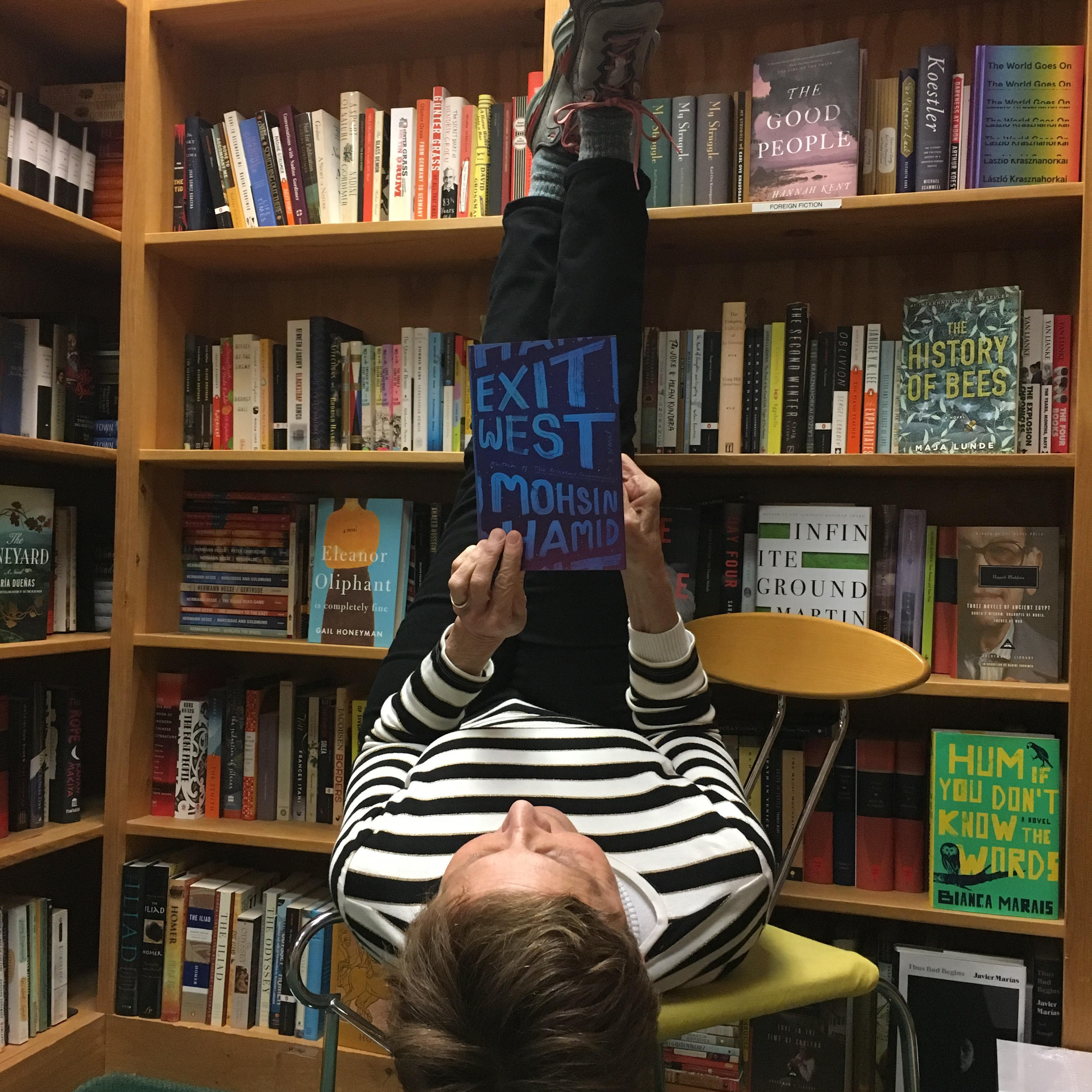 Exit West
Exit West The Heart’s Invisible Furies
The Heart’s Invisible Furies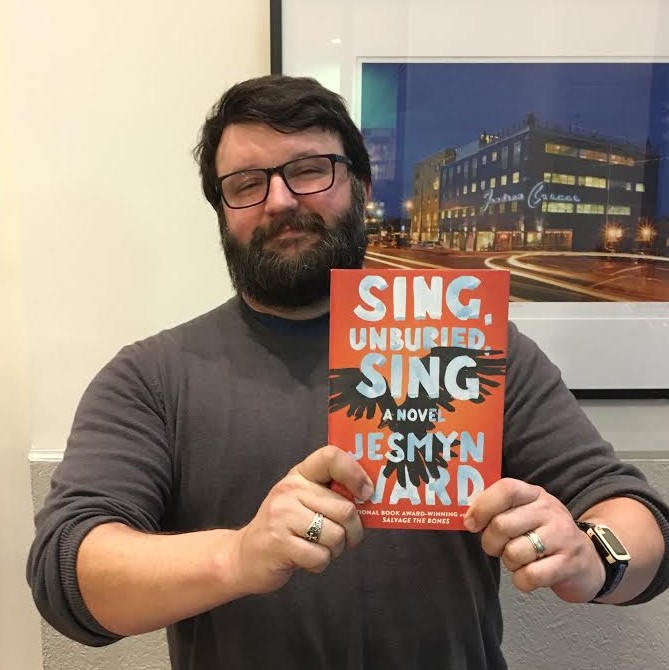
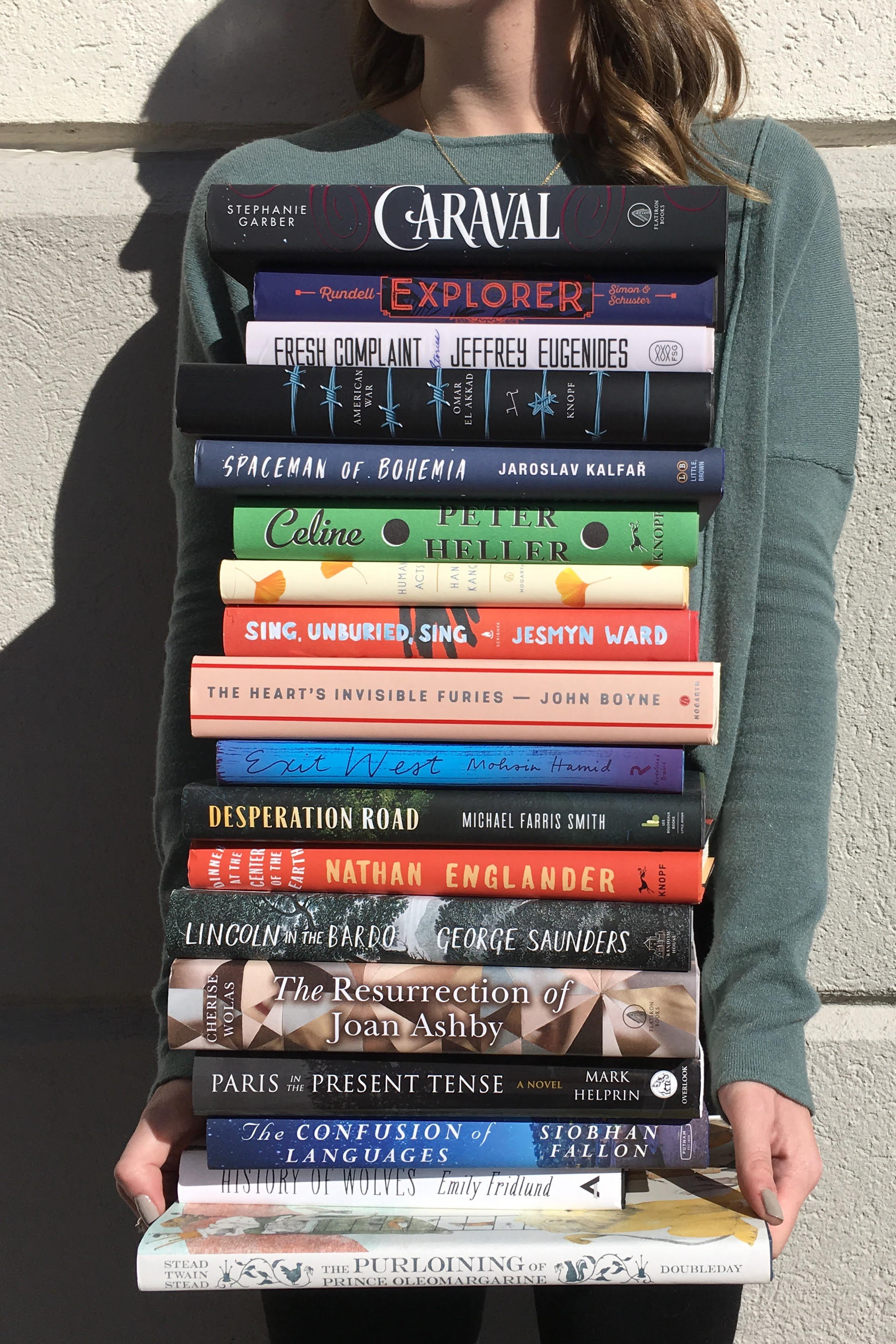

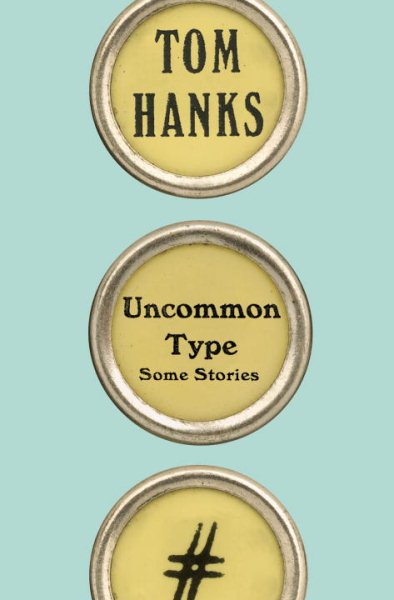 There is also, of course, the underlying presence of typewriters. For those of you who don’t know, Hanks has a slight obsession with the machine. He even typed up this collection on one. So he made sure that one crops up in each of his stories in some way, just another element of the “yearning for older times” theme that’s present throughout the book. In particular, “These are the Meditations of My Heart” is all about a woman who falls in love with typewriters.
There is also, of course, the underlying presence of typewriters. For those of you who don’t know, Hanks has a slight obsession with the machine. He even typed up this collection on one. So he made sure that one crops up in each of his stories in some way, just another element of the “yearning for older times” theme that’s present throughout the book. In particular, “These are the Meditations of My Heart” is all about a woman who falls in love with typewriters. 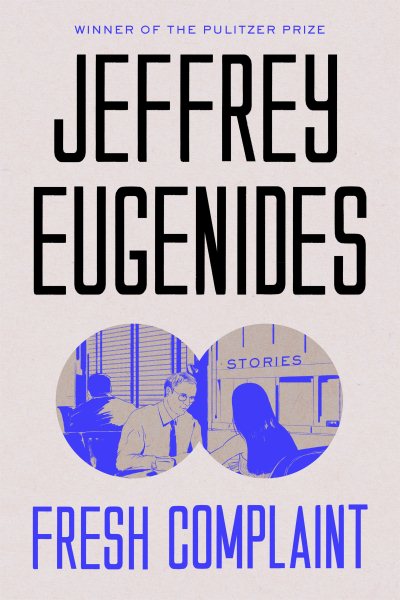 I lied. I had already cried, specifically while sitting by my apartment’s swimming pool and reading the story “Early Music.” I don’t think anyone saw, but if they had, I would have told them the truth–that one of my favorite authors has reminded me how much I love books, and that I am not sure I will ever be so passionate about anything else.
I lied. I had already cried, specifically while sitting by my apartment’s swimming pool and reading the story “Early Music.” I don’t think anyone saw, but if they had, I would have told them the truth–that one of my favorite authors has reminded me how much I love books, and that I am not sure I will ever be so passionate about anything else. You’ve enjoyed a full life — world traveler, family man, would-be farm hand and at times you’ve turned your attention to politics (mostly through your deep interest in policy), journalism, the military, and your own formal education, not to mention an amazing career as a writer. How have you managed to fit so many interests into your seven decades?
You’ve enjoyed a full life — world traveler, family man, would-be farm hand and at times you’ve turned your attention to politics (mostly through your deep interest in policy), journalism, the military, and your own formal education, not to mention an amazing career as a writer. How have you managed to fit so many interests into your seven decades? Your newest book, “Paris in the Present Tense,” is another fictional work presented on a grand scale. In this story of an aging man consumed with worry about his grandson’s serious illness, main character Jules Lacour is keenly aware of his own inability to offer much in the way of financial support. A deep thinker with strong convictions, he looks back on his own life with his share of regrets and fears. In many ways, most of us have a lot in common with Lacour. Can you share your reflections on him?
Your newest book, “Paris in the Present Tense,” is another fictional work presented on a grand scale. In this story of an aging man consumed with worry about his grandson’s serious illness, main character Jules Lacour is keenly aware of his own inability to offer much in the way of financial support. A deep thinker with strong convictions, he looks back on his own life with his share of regrets and fears. In many ways, most of us have a lot in common with Lacour. Can you share your reflections on him?